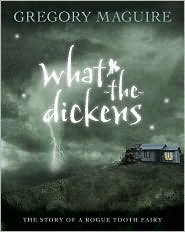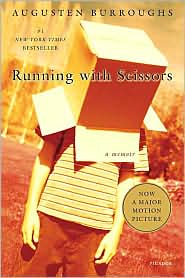This is from “Caught Reading: Summer Project 2007.”
 The Dante Club, by Matthew Pearl
The Dante Club, by Matthew Pearl“An interesting historical fiction mystery that starts out a little rough but finishes strong. This book was very hard to get into since the first 50 pages were more or less for character analysis and laying the foundation for the rest of the novel, but once it gets into the mystery of it (and people start dieing), it keeps you at the edge of your seat. Four Boston writers in 1865 (Henry Wadsworth Longfellow, Oliver Wendell Holmes, James Russell Lowell, and J.T. Fields) are working on translating Dante's "Inferno" with much literary criticism from those who don't think Dante's writings are appropriate in proper society. But when multiple murders start occuring, the writers get swept into the mystery after discovering that the events are mimicking gruesome scenes taken directly from Dante's work. It is up to the intellectuals to save the day since they are the only ones capable of making any sense of it all. If you can struggle through the beginning of the novel (which I admit was hard) you will be rewarded for your efforts by going through the amazing and exciting process of finding a serial killer in historical Boston.”
I still think this book is a good one to share, which must say something about its quality. Personally, being an English major, I liked the literary aspects they were able to take to “epic” proportions. The beginning takes a while only because you need some time to understand the politics of the university administration and untangle a cast of seemingly similar professor characters. The action in this book is thrilling, and not what you would expect from older teachers. It is both physically and mentally active. The main characters stick to their passion of translating Dante even to the point of almost losing their jobs, but their work leads them to the cat-and-mouse chase of a mass murderer. They want to inspire others through this epic poem, but one character becomes far too inspired to the point of reenactment. Only those with literary knowledge are able to solve the mystery, which is inspiring to us English majors. But the best part is that you don’t have to be a literature expert to understand the novel or its references. The author gives readers the exact amount of knowledge needed about Dante’s work through the comprehensible dialogue that also helps readers just feel smart for knowing anything about Dante.
I think it says enough that I have chosen to re-share this book; I would definitely recommend it to any book lover who just likes to know that someday everything they read will help pay off. Maybe not to the point of catching a murderer, but I hope all this reading will help mold me into a cultured individual… someday.
“A capacity and taste for reading gives access to whatever has already been discovered by others.”
- Abraham Lincoln



